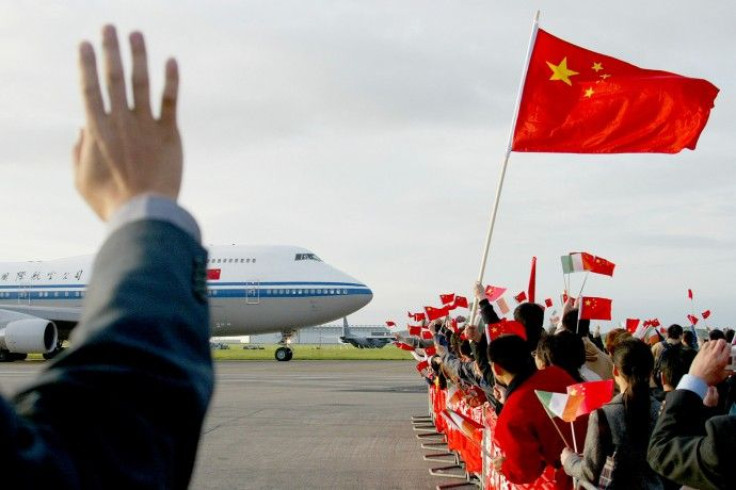Could China be the 'prince charming' for Ireland?

As comments from Dublin and Brussels strongly hint at the possibility of Ireland formally seeking international financial support sooner or later, analysts are mulling the chances of a possible bailout of the stricken Celtic Tiger by the robust Chinese Dragon.
Simon Johnson, a professor at MIT’s Sloan School of Management, asked in a Bloomberg article whether it wouldn’t make sense for China to park a part of its $2.6 trillion reserve funds in Ireland, thereby opening another front in its strategic investment expansion in Europe.
As an alternative, Europe could place a call to Beijing to find out if China would like to commit some of its $2.6 trillion in reserves to keep European creditors whole. This would be an enormous opportunity for China to vault to a leading global role, wrote Johnson.
The Chinese have poured billions of dollars in opportunistic investments in various countries of Africa, Asia and Latin America in recent times to bolster its grip on natural resources, and more recently, has offered to help Greece cope with its financial distress.
Early last month Chinese Premier Wen Jiabao promised in Athens his country will buy Greek government bonds when they are issued. An ambitious Chinese investment blueprint in Greece was also unveiled during Wen's visit, which showed the Chinese will build roads, pipelines and rail tracks, besides investing heavily in Greece's shipping industry and ports infrastructure.
The Chinese are also viewed far more favorably in Greece than most of the western European countries which are concerned over a growing ‘Chinese threat’. They are not like these Wall Street [expletive] pushing financial investments on paper. The Chinese deal in real things, in merchandise. And they will help the real economy in Greece, Theodoros Pangalos, Greece's deputy prime minister, was quoted by Washington Post as saying.
In Ireland too, there is a positive perception about the Chinese role in the economic recovery.
Irish Prime Minister Brian Cowen said earlier in the year Ireland could become the gateway for Chinese investment into Europe. Cowen pointed out that Ireland, the only English-speaking country in the Eurozone, had distinct advantages in its quest to improve partnership with China.
Statistically, trade between Beijing and Dublin has increased about six fold in the last decade.
Though Ireland is taking pains to dismiss theories that it will have to seek aid eventually analysts are more or less certain that the country will have to seek aid. The European Central Bank is willing to funnel more euros to help the ailing economy stay the course, though opposition from the German taxpayers is mounting. The Great Britain too has said it will give as much as $10 billion to Ireland if Dublin asked for aid.
An ECB-IMF aid package will certainly come with dishonorable riders, while a possible British aid would be too bitter for the Irish to swallow, having fought valiantly for independence from the British decades ago. The comments in the British media, though sympathetic, are also condescending.
The Irish media and the opposition party have come out heavily against the plans to seek assistance from Germany and Britain. The Irish Times has slammed the government for appearing to work towards a “German bailout with a few shillings of sympathy from the British chancellor.”
Fierce nationalism and the legacy of prime minister Cowen's Fianna Fail party, which spearheaded the move to gain independence from Britain, may not eventually come in the way of the country accepting a rescue package offered by its soon-to-be masters, the ECB and the IMF.
However, given the organic growth of China's presence in Europe and Beijing's history of opportunistically picking up investment options, albeit risky ones, there is still merit in the argument that the Dragon could very well be the prince charming for Ireland.
A Chatham House report last year pointed out that given China's vast reserves and financial might, its investment portfolio in Europe is negligible, and this means Beijing is in a position to flag off substantial investments in the region.
Compared with other countries, China’s ODI is still extremely modest as a ratio of GDP, as reflected in the ODI performance index computed by UNCTAD.6 According to this index, China invests abroad far less than might be expected, given its economic size, the report says.
The report says Chinese greenfield investments in Europe rose by 500 per cent since 2000. But it says the performance of Chinese ODI in Europe has been less than robust historically, in terms of profitability, strategy and overall success. But things are changing, and the 'Chinese threat', as seen by the Europeans, will become more real going forward.
Of course, the past is not necessarily a good guide to the future and Chinese investments can be expected to gain ground further.
© Copyright IBTimes 2024. All rights reserved.











